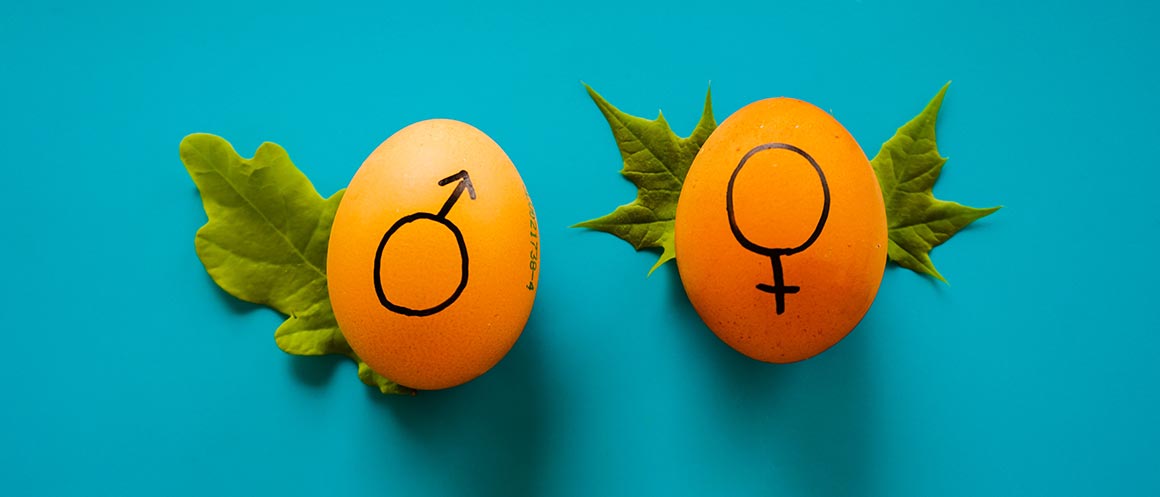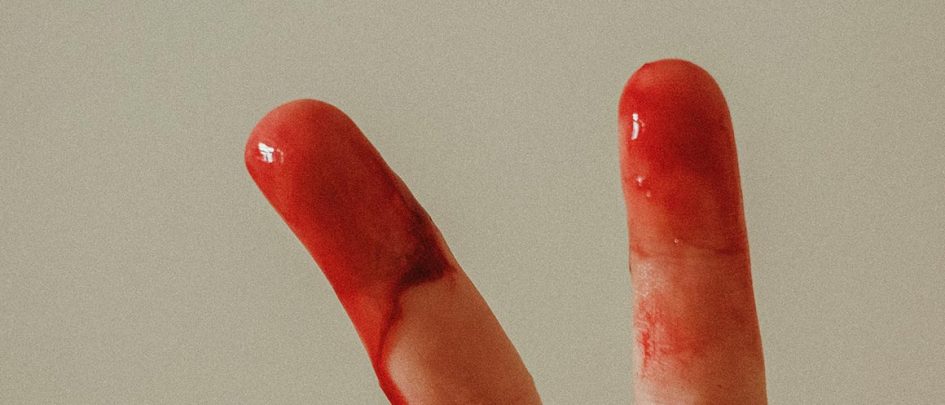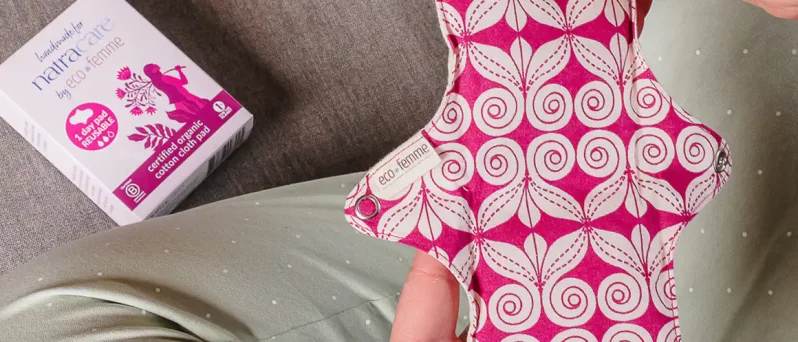If you had called us ‘nice’ 700 years ago , we’d have slapped you in the face for calling us ignorant. Now, we’d be flattered, charmed in fact! Language is ever-changing, and sometimes understandings of concepts develop and cause language shifts. For example, a period isn’t something that only happens to feminine people, so the term “feminine hygiene” just won’t cut it anymore.
Does language always change?
Some words are more rigid than others. Medical names are one example of words that don’t change as fluidly, often to help prioritise understanding and avoid confusion. In the context of periods, hormone names like oestrogen and testosterone haven’t really changed over time.
We recently heard Sally King, founder of Menstrual Matters, speak about the etymology of these words and how they perpetuate gender norms and stigma. We decided to take a look for ourselves and see if hormone names are upholding gender myths. Here’s what we found:
Oestrogen
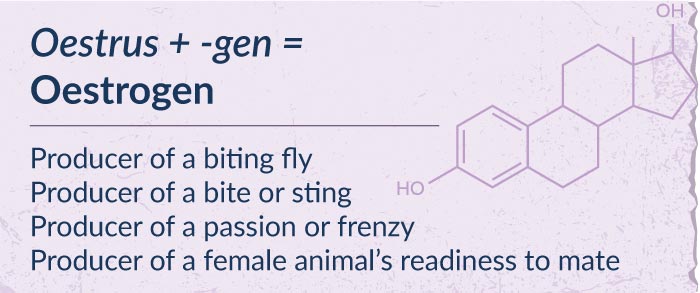
The roots of the word oestrogen (also spelled estrogen) are oestrus (or Estrus) and -gen. Oestrus is a word borrowed in English from several words in Latin, Ancient Greek, Lithuanian, and more.
From these borrowed words, oestrus is defined in a few ways:
- A biting fly
- A bite or sting
- A passion or frenzy
- A female animal’s readiness to mate
-Gen refers to “a producer of”. So oestrogen can mean a producer of one or several of the above bullet points. It could be a producer of a passion or frenzy, or a producer of a female animal’s readiness to mate.
Considering the menstrual cycle phases, we know that oestrogen levels are high during ovulation – which is when we’d be considered biologically “ready to mate”. This definition matches the use of oestrus in oestrogen, and there is no denying that oestrogen is often viewed as a “female hormone”. So much so that some men have avoided soy-based foods just in case their high oestrogen content affects their hormone levels, making them more, god forbid, “feminine”.
“Hormonal” women and people with periods are also viewed to be biting, and in some form of passion or frenzy. Perhaps the relationship between these several definitions has upheld this perception of “hormonal” women and people with periods over the years.
Testosterone
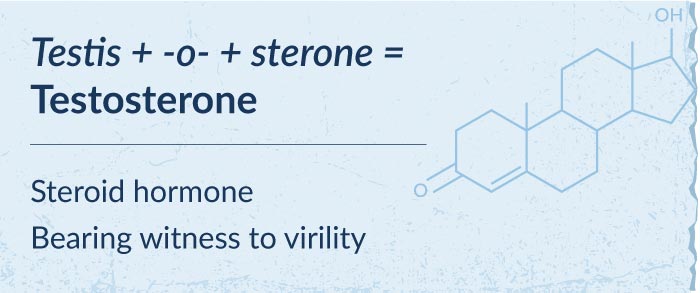
The word testosterone comes from the Latin testis meaning witness and is thought to reference “bearing witness to virility”. Virility means having strength, a sex drive, and energy – so the epitome of the patriarchal understanding of manliness (read: 🙄). Sterone is a steroid hormone, so helps to identify that testosterone is exactly that.
A common misunderstanding is that biological men are the only people who produce testosterone. Maybe this is due to toxic masculinity stereotyping that men are strong, energetic, and have more demanding sex drives? The reference to virility might make people think that testosterone is a “male hormone”. When in fact, women and people with periods also have testosterone.
Could the origins of testosterone have led us to believe for centuries that strength and sex drive are exclusively masculine characteristics? Is the etymology of this word a result of these beliefs? It certainly wouldn’t surprise us.
Progesterone
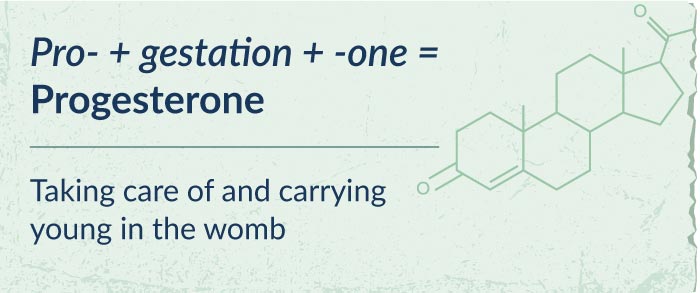
Progesterone is a compound that prepares the uterus for implantation and maintaining pregnancy (a compound is something made up of two or more elements). Pro in Latin is used as a first element in compounds. It can also mean “toward the front, forwards, taking care of”.
Gestation from Latin “gestationem” means “a carrying” and was defined in the 1610’s as “an action or process of carrying young in the womb”. The etymology of progesterone relates heavily to fertility and carrying a foetus or baby. This makes a lot of sense when progesterone peaks right after ovulation and drops suddenly if an egg isn’t fertilised. The hormone name doesn’t seem to uphold many gender stereotypes, other than the potential to view women and people with periods as child bearers only.
Are hormone names sexist?
Sure, the names of these hormones are rooted quite heavily in gender myths and stereotypes, but we’re not totally convinced the names should be changed. It’s still useful to be aware of how these myths are perpetuated in so many areas of our lives, so that we can view them critically and be aware of when they’re being used against us.
Are there any other words that you know are still gendered? Let us know in the comments below!
